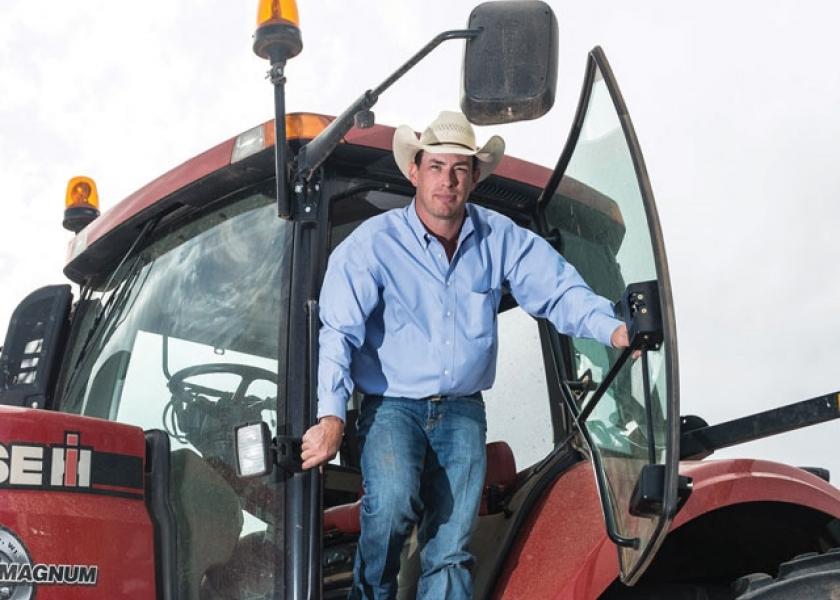Innovation Meets Tradition: Okla. Farmer Adds Value to 100-Year Farm

Farming in southwest Oklahoma is not for the faint of heart. Clouds can roar over the prairie and drop 6" of rain hard and fast—or disappear for months. Relentless sunshine and wind sizzles and scatters soil, and herds of up to 60 feral hogs nose through freshly planted milo fields, eating every seed and leaving ruts that can hardly be conquered by a sprayer.
Farmers here must be flexible, financially minded and creative. A big helping of grit helps, too. That’s what Cody Goodknight, the 2017 Tomorrow’s Top Producer Horizon Award winner, brings to the table.
Goodknight is the fifth person in his family to hold the reins of Goodknight Farms, established in 1911 near Chattanooga, Okla., by his great-grandfather, Albert Victor Goodknight. Building on the traditions and firm foundation set by his predecessors, 31-year-old Cody has expanded the business, created new income streams, built a strong team and increased professionalism in the century-old operation.
Today, Goodknight Farms includes 3,200 acres of wheat, cotton, sesame and grain sorghum; 1,600 acres of range and grassland; and a cattle operation including 200 bred heifers and 800 stocker calves. All wheat acres are dedicated to production of certified seed wheat, which is sold to local customers. The team, which includes two full-time and several part-time employees, also does custom farm work on 3,000 local acres and harvests wheat and cotton for customers in Colorado, Kansas, Nebraska and Texas.
Dad and Son. In 2008, Goodknight joined the farm full-time after earning a degree in agribusiness from Oklahoma State University. It fulfilled a dream he’d had since elementary school. His father, John, led the operation. “We get along great,” Goodknight says. “A lot of people struggle with a dad who is old-school, but my dad has always been innovative. I would not be as good of an operator without his innovation and ideas.”
John taught Goodknight the ins and outs of the business. He provided deep-dive instruction on finances, the importance of improving and protecting farmland and ways to build a professional network. The two formed a partnership and made plans to gradually shift Goodknight into the role of manager, allowing John to step back in his responsibilities and travel more with his wife, Maggie.
But the timeline abruptly veered into the fast track. In early October 2013, a pickup truck driver pulling a stock trailer T-boned John’s pickup. The crash broke John’s neck and left him unconscious for four weeks.
“That was our busy season for seed-wheat sales, and we were planting,” Goodknight recalls. “At the time, it was just me and dad and one other full-time guy. My dad was in Oklahoma City two hours away, so I was trying to go see him and run the operation. We were making plans for the worst because the doctors didn’t think he’d make it.”
Yet John recovered. After two more months in the hospital, he returned home. The wreck left him unable to continue working, and it placed management of the operation on Goodknight’s broad shoulders.
“He has been more than up to the challenge,” explains J. David Schumpert, the operation’s CPA. “The upside of this adversity has been to accelerate new and innovative practices at Goodknight Farms.”
Return on Investment. By hewing to his father’s mantra, Goodknight has added value to every crop and animal they produce, whether by growing specialty crops, raising award-winning livestock or trucking grain hundreds of miles to capture the best price. “We want to be an above-average producer,” he says.







